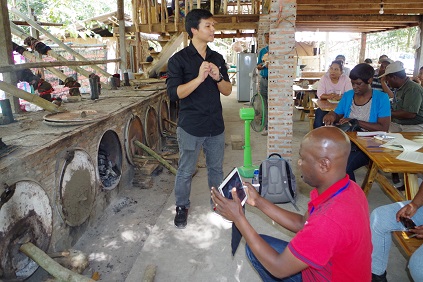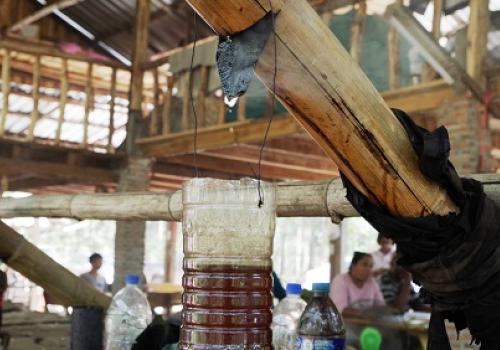The Southern Africa Development Community (SADC) joins the world to commemorate the International Day of Forests under this year’s theme: Forests & Energy.
Every 21st of March the Day is celebrated in order to increase the public awareness among communities about the values, significance and contributions of the forests to balance the life cycle on the earth and to provide educational information on how people can promote sustainable forest management.
For SADC Member States forests, whether natural or man-made, are a resource, which provide commercial products, biomass energy and employment, alongside the ecosystem services, for which forests are well known. Forestry is therefore an important area of work for SADC.
The SADC region, under the leadership of SADC Secretariat, has made various policy pronouncements and has established instruments (agreements, protocols, strategies, programmes and guidelines) that promote sustainable management of forests in the region. They include among others, the SADC Protocol on Forestry and the SADC Forestry Strategy (2010-2020). Whereas the Protocol lays out a number of guiding principles on how Member States should cooperate to protect, manage and utilize their forests to meet both regional and national objectives, the Forestry Strategy strives to prioritize and operationalize the implementation of the SADC Protocol on Forestry. The strategy also identifies a few areas in forestry development which are of strategic importance to the region and in which cooperation among countries can help achieve more than is possible if countries act individually.
Further, SADC is implementing a regional Project for Forest Conservation and Sustainable Management of Forest Resources in Southern Africa, which commenced in June 2015. The aim of the project is to contribute to the efficient and effective implementation of the SADC Forestry Strategy and it is supported by the Government of Japan through the Japan International Cooperation Agency (JICA).
On this year’s theme Forests & Energy - Forests are a major source of world’s renewable energy in the form of wood fuel. About 50 percent of global wood production is used as energy for cooking, heating, and electricity generation. For 2.4 billion people, wood fuel means a cooked and more nutritious meal, boiled water, and a warm dwelling. The reliance on wood fuel for energy has resulted in deforestation due to overharvesting and unsustainable forest utilization practices. Most of the households in the region rely on charcoal for energy. Unsustainable charcoal production is a major cause of the forest degradation in Southern Africa. More than often people engage in unsustainable practices and/or illegal harvesting of resources due to lack of information about alternative approaches as well as limited livelihood options. Therefore, the Energy issue is incorporated as one of the focus of the SADC regional forestry project.
The project has three focal areas namely Forest Information System, Forest Fire Management and Participatory Forest Management. The issues of energy are addressed by the Participatory Forest Management focal area under the topic “Sustainable Charcoal and Efficient Resource Use”. The Expert Working Group (EWG) for Participatory Forest Management has been formed comprising of members from the 15 SADC Member States. The EWG meets to exchange ideas on how both energy use and sustainable forest management can be achieved. They also make inspection visits to learn from best available practices in the region and elsewhere. For instance in February the EWG members participated in an exchange visit to Thailand where they learned about the Kiln that produces more charcoal than the ones used in Africa. In addition, a by-product of Wood vinegar can be collected from this kiln, as a good source for natural fertilizer and/or insecticide and could be used to improve livelihoods either through increased crop production or business opportunities.
The EWG does not address energy as a stand-alone issue, but as part of the forest conservation and sustainable forest resource management issue. Participation of the local community is a key to success. The Project continues to assist Member States in the practice and dissemination of the Key Message and Philosophy of the International Day of Forests throughout the project.


